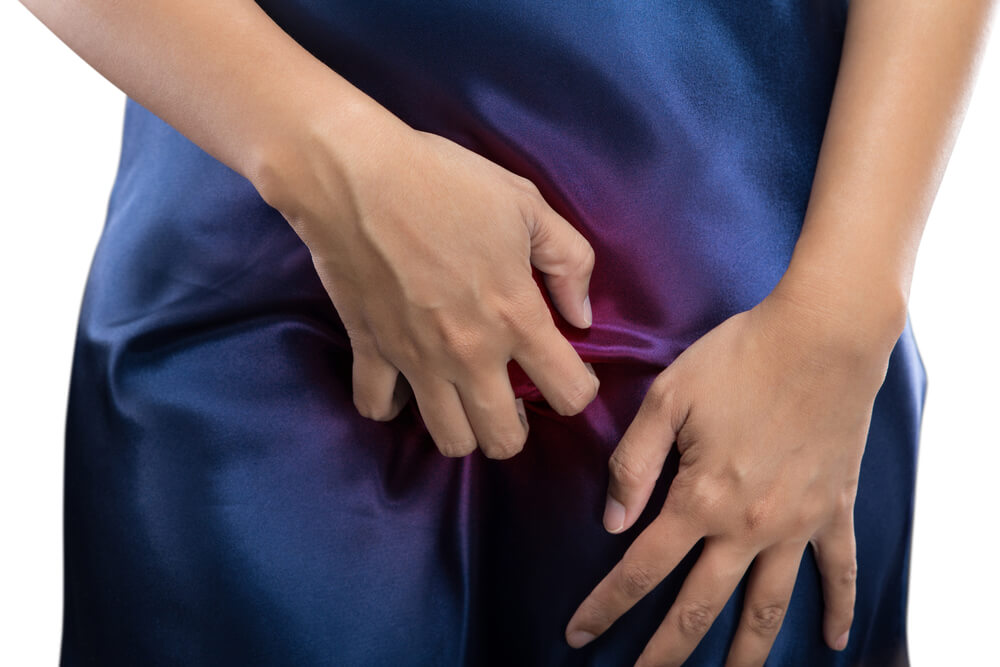Vulvar dermatitis – a term that might sound a bit intimidating at first, but it’s essential to shed light on this common yet often misunderstood condition that affects many women. If you’re experiencing discomfort or itching in your intimate area, there’s a chance that vulvar dermatitis might be the culprit. In this comprehensive guide, we’ll dive deep into the main causes, symptoms, and effective treatments for vulvar dermatitis. By the end, you’ll have a better understanding of this condition and how to find relief. Don’t hesitate to seek professional gynecological services in Doral, FL, if you notice some unusual symptoms regarding your vaginal health.
Understanding Vulvar Dermatitis
Vulvar dermatitis is a condition characterized by inflammation of the delicate skin surrounding the vagina, known as the vulva. This inflammation can result from various causes, but it typically leads to itching, burning, redness, and discomfort in the affected area. While it might be tempting to ignore these symptoms or try to self-diagnose, seeking proper medical guidance is crucial for effective treatment.
Vulvar dermatitis can affect women of all ages, from adolescents to postmenopausal individuals. While it’s more common in women, men can also experience similar symptoms in the genital area, which is referred to as penile dermatitis. However, this article focuses primarily on vulvar or vaginal dermatitis.
It’s important to note that vulvar dermatitis can be mistaken for other conditions, such as infections or sexually transmitted diseases (STDs). Therefore, it’s crucial to consult a healthcare professional for an accurate diagnosis. Your healthcare provider may perform a physical examination, request a detailed medical history, and, in some cases, recommend additional tests to rule out other conditions.
When it comes to vulvar dermatitis treatment, the duration can vary depending on the underlying cause and the severity of symptoms. Some women experience relief within a few days of starting treatment, while others may require more extended periods of care and monitoring. It’s essential to follow your healthcare provider’s recommendations closely and attend follow-up appointments to track your progress.

Common Causes of Vulvar Dermatitis
- Contact Dermatitis on Vagina: One of the primary culprits behind vulvar dermatitis is contact dermatitis on the vagina. This occurs when the sensitive vulvar skin reacts negatively to irritants or allergens. Common irritants include scented soaps, perfumed toilet paper, harsh detergents, and even certain fabrics in underwear.
- Yeast Infections: Yeast infections, specifically Candida overgrowth, can lead to vaginal dermatitis. The excessive growth of yeast can cause itching, redness, and discomfort in the vulvar area.
- Eczema and Psoriasis: Skin conditions like eczema and psoriasis can extend to the vulva, resulting in vulvar dermatitis. These conditions can cause itchy, scaly patches on the skin, making the affected area more prone to irritation.
- Allergic Reactions: Allergic reactions to latex condoms, spermicides, or even certain lubricants can trigger vulvar dermatitis in some individuals.
- Hormonal Changes: Hormonal fluctuations, especially during menopause, can lead to thinning of the vulvar skin and increased susceptibility to irritation.
Recognizing the Symptoms
Identifying the symptoms of vulvar dermatitis is the first step toward effective treatment. It’s important to remember that the symptoms may vary from person to person, and their severity can also differ. Here are some common symptoms of vulvar dermatitis:
- Itching: Persistent itching in the vulvar area is one of the hallmark signs of vulvar dermatitis. It can range from mild to severe and can be incredibly uncomfortable.
- Redness: The affected area may appear red and inflamed. This is a clear indicator that something is amiss with the vulvar skin.
- Burning Sensation: Many women with vulvar dermatitis report experiencing a burning or stinging sensation in the vulva.
- Swelling: In some cases, the vulvar area may become swollen, adding to the discomfort.
- Discharge: Unusual vaginal discharge may accompany vulvar dermatitis, particularly if it’s caused by an underlying infection.
- Dryness and Flaking: Dry, flaky skin on the vulva can be a sign of chronic vulvar dermatitis, especially if eczema or psoriasis is the root cause.
Effective Vulvar Dermatitis Treatment
The good news is that vulvar dermatitis is a treatable condition, and many women find relief with the right approach. Here are some effective treatments for vulvar dermatitis:
- Identify and Eliminate Triggers: If contact dermatitis is the cause, identifying and avoiding irritants is essential. Switch to fragrance-free products, hypoallergenic detergents, and breathable cotton underwear.
- Topical Creams: For cases involving inflammation and itching, your healthcare provider may recommend topical corticosteroid creams. These can help reduce inflammation and alleviate discomfort.
- Antifungal Medications: If a yeast infection is responsible for your vulvar dermatitis, antifungal medications can clear up the issue. These are available over-the-counter or through a prescription, depending on the severity.
- Moisturizers: Non-fragranced, hypoallergenic moisturizers can help combat dryness and keep the vulvar skin hydrated.
- Hormone Therapy: For postmenopausal women, hormone therapy may be recommended to address thinning vulvar skin.
- Lifestyle Changes: Sometimes, lifestyle adjustments like wearing loose-fitting clothing and avoiding excessive heat and moisture can make a significant difference.
- Prescription Medications: In cases of severe or chronic vulvar dermatitis, your healthcare provider might prescribe stronger medications or recommend specialist care.
Preventing Recurrence
Preventing vulvar dermatitis from recurring is just as important as treating it. Here are some tips to keep vulvar dermatitis at bay:
- Maintain Good Hygiene: Cleanse the vulvar area gently with mild, fragrance-free soap and warm water. Avoid excessive scrubbing or harsh cleansers.
- Choose the Right Products: Opt for hypoallergenic, fragrance-free personal care products, and detergents.
- Cotton Underwear: Wear breathable cotton underwear to reduce moisture and friction.
- Stay Dry: After bathing or swimming, pat the vulvar area dry instead of rubbing it with a towel.
- Avoid Tight Clothing: Tight clothing can trap moisture and irritants, so choose loose-fitting attire, especially in hot weather.

Psychological Impact and Support
Living with vulvar dermatitis can have a significant psychological impact. The constant discomfort and embarrassment associated with the condition can affect one’s self-esteem and quality of life. It’s important to remember that you are not alone in dealing with vulvar dermatitis, and there are support groups and online communities where individuals share their experiences and coping strategies. Connecting with others who have faced similar challenges can provide emotional support and valuable insights.
Additionally, consider discussing your emotional well-being with your healthcare provider. They can offer guidance on managing stress and anxiety related to vulvar dermatitis, which can sometimes exacerbate symptoms. A holistic approach to your health, considering both physical and emotional aspects, can contribute to a more comprehensive and effective treatment plan.
Conclusion
Vulvar dermatitis is a common condition that can cause significant discomfort for women. However, with the right knowledge, early detection, and appropriate treatment, relief is within reach. Remember, if you suspect you have vulvar dermatitis or are experiencing symptoms, it’s crucial to consult a healthcare professional, so contact our clinic now for a proper diagnosis and personalized treatment plan. By taking the necessary steps to identify and address the root causes of vulvar dermatitis, you can regain your comfort and confidence in no time. Your vulvar health matters, so don’t hesitate to seek the help you deserve.


